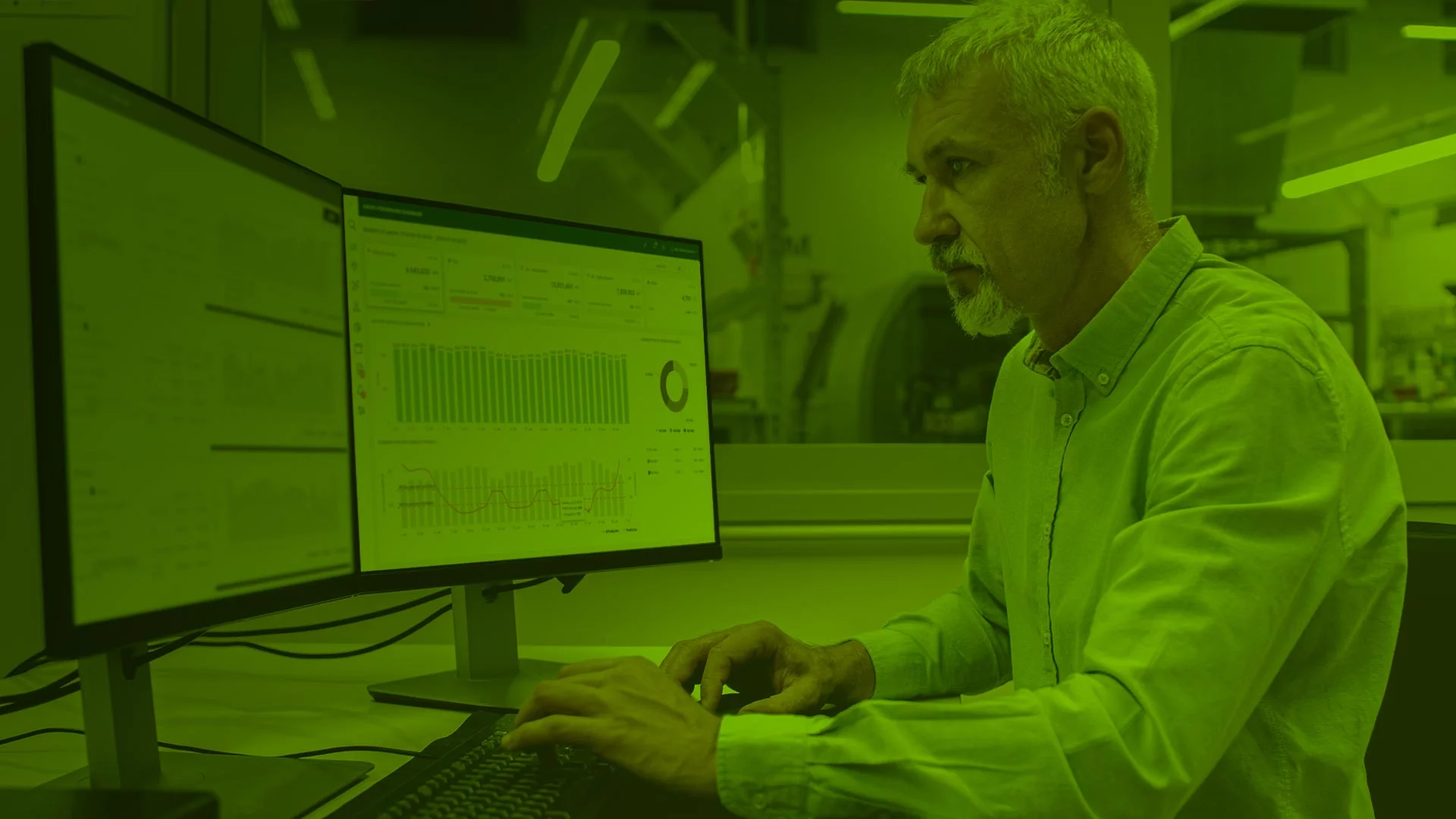The FMCG industry faces new challenges every year. Production in line with government requirements and the need to meet the increasingly high expectations of end consumers mean that manufacturers are looking for new opportunities to support them in improving the quality, efficiency and cost-effectiveness of their processes. How can an MES system help to achieve these goals?
Key challenges facing the FMCG industry
Industry reports unanimously confirm that a key assumption when considering the challenges in the FMCG industry is the global expectation of sustainable product management. Created by Osborne Clarke, the report 8 Challenges for the FMCG Industry in 2023 discusses the challenges facing the FMCG industry mentions, among other things, the need to reduce the carbon footprint, eliminate greenwashing, stick to zero waste and optimise energy management. How can a production management system help meet these requirements?
Reducing the carbon footprint
Reducing the carbon footprint is required by both government bodies and customers themselves, who are increasingly aware of the need to care for the environment. One of the documents confirming the need for action in this direction is the New EU Action Plan on a Closed Economy for a Cleaner and More Competitive Europe. Among other things, this blueprint envisages the following:
-
- Reducing the carbon footprint for products and packaging.
-
- The creation of a digital product passport that will help track product information along the value chain and allow the actual carbon and environmental footprint of a product to be calculated and controlled more effectively.
MES is an effective tool needed to reduce the carbon footprint of production. How?
-
- Prudent management of current resources makes it possible to use raw materials efficiently and maintain optimum stock levels.
-
- With digital transformation, the company is eliminating the need to use paper for production documentation in favour of a digital format.
Protection against greenwashing
According to the EU’s New Action Plan on a Closed Circuit Economy for a Cleaner and More Competitive Europe, from now on there will be a strong focus on enforcing greenwashing. What does this term mean? Greenwashing is the artificial creation of the impression by businesses advertising their products that an article has been produced in accordance with ecological and environmental principles, when in fact this is untrue or cannot be proven.
MES provides a simple and irrefutable way to prove that a particular product has been made in a particular way.
-
- Real-time production data downloaded from the machines provides detailed reports on the carbon footprint per unit of product.
-
- Digital documentation eliminates the possibility of data manipulation so that, in the event of an audit, the company can provide irrefutable evidence of production processes.
Zero waste production
Sustainable product management involves the need to reduce production waste as much as possible. According to the aforementioned document, recycling will play an important role in the FMCG industry and the increased occurrence of closed-loop circuits will also increase the competitiveness of the EU industry. The report 8 Challenges for the FMCG industry in 2023 highlights the importance of countering resource depletion, preventing waste, as well as the role of using digital technologies in production.
How does MES influence the realisation of zero waste in manufacturing?
-
- The data collected makes it possible to determine the cause of the most frequent defects in a Pareto chart, and the conclusions drawn from the analyses make it possible to reduce or eliminate errors.
-
- Real-time production control, quality monitoring and a guarantee of process repeatability translate into minimised waste generation and enable optimum use of storage resources.
Optimising energy consumption
The energy crisis initiated in 2022 has resulted in a significant increase in utility prices. As a result, special attention is now being paid to the culture of energy consumption. The report Electricity 4.0 – cheaper, cleaner and more stable energy for Polish enterprises. Edition 2022 reports on the need to take measures to eliminate energy losses. As one of the ways to do this, experts mention the use of IT management systems.
How does MES optimise energy consumption in production processes?
-
- Careful production planning based on current resources, instant response to real-time events, reduction or elimination of waste-generating errors, reduced downtime and immediate response to machine breakdowns – advanced software functionalities make the production facility increase machine availability and make better use of available resources, including those in the form of utilities.
-
- Integration of the MES with the EMS enables real-time monitoring of utilities, as well as aiding leak detection and eliminating wastage.
MES is an advanced tool to help companies meet increasingly stringent environmental expectations. Opt for state-of-the-art software and produce in an efficient and sustainable way!
Products in this Article

MES System – Manufacturing Execution System – ANT Solutions
System MES – Manufacturing Execution System 0 % operating time increase 0 % defects quantity reduction 0 % material consumption reduction 0 % changeovers time

Energy Management System (EMS)
Energy Management System (EMS) Monitor utilities usage in real-time and reduce cost Schedule a Demo They Trusted Us: What is ANT EMS? ANT Energy Management

